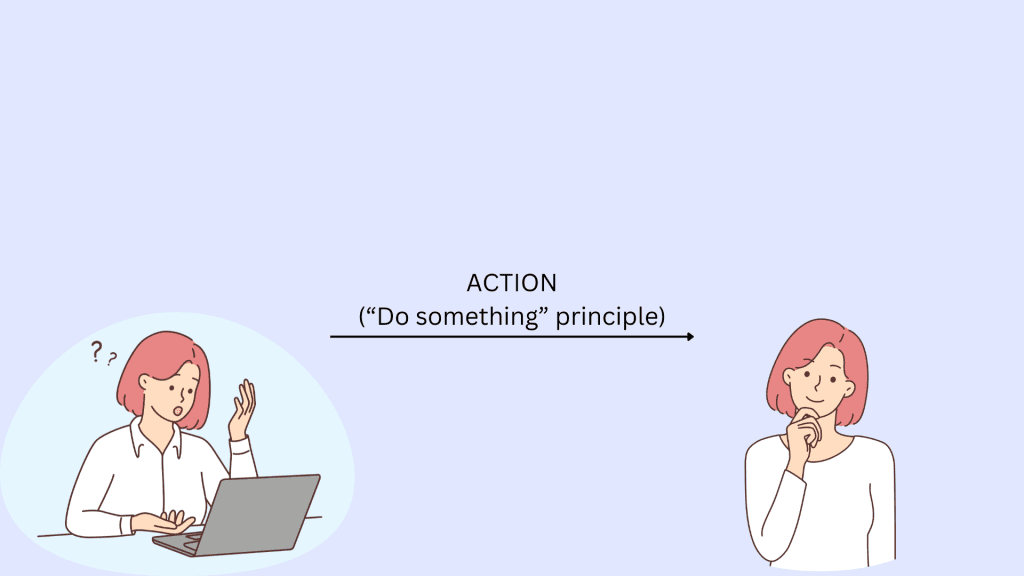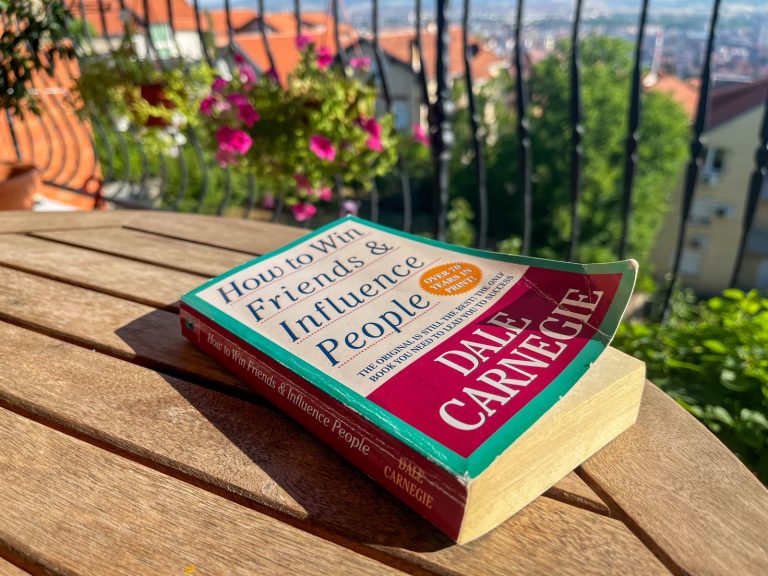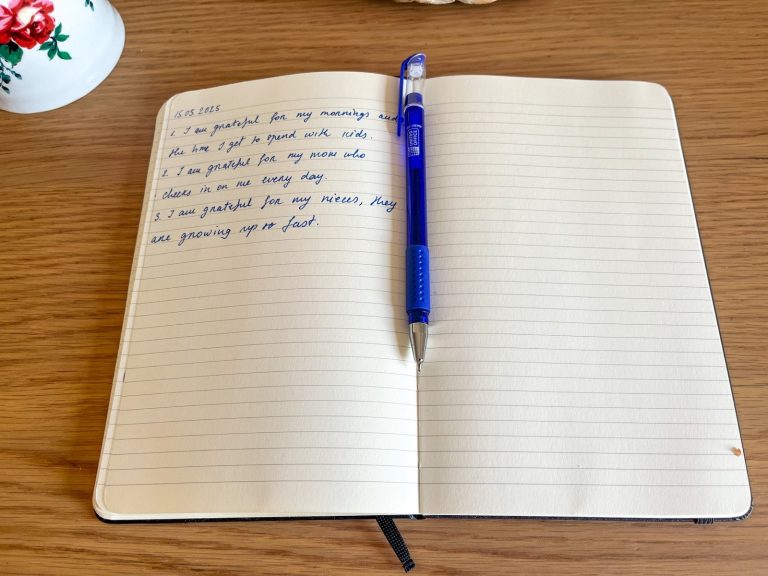How to Change Yourself: Tips for Personal Growth
“How to change yourself?” is one of the most asked questions today. And at some point in life, each of us faces it.
I’ve faced that question several times, stuck in bad habits I couldn’t change, feeling inadequate, dissatisfied with my relationships, and unhappy with how my life was unfolding.
It’s easy to lose yourself. To feel like you’re watching your own life play out, unable to change anything. We forget who we truly are and start believing our worth depends on how we compare to others.
Year after year, I tried to change. I’d build good habits, only to fall back into old patterns weeks later. Not only were my habits misaligned, but so was my entire perspective. I felt a deep dissatisfaction with my choices and the way I lived.
Return to yourself
Like many others, I realized too late that I had neglected what truly mattered in the pursuit of superficial goals.
Spending too much time on social media changed how I saw myself. It made me feel inadequate and unattractive, as if my life could never measure up to the perfect images on my screen.
The main reason I wanted to write this post is to remind you that social media is quietly shaping your goals for you. It gives you an unrealistic picture of what your life should look like. And little by little, you start to want the same things as the people you watch online.
The change doesn’t come from doing more or owning more.
It starts with returning to yourself.
To your values, the ones you had as a child. To the things that made you feel alive and curious.
To the simple joys that used to make you happy.
The real change is not becoming someone new.
It’s coming home to who you’ve always been.
How to change yourself in 6 steps
1. Start writing and observing
I picked up a journal and used it to write down my thoughts. Morning Pages helped a lot, as they served as a brain dump every single morning. But a simple diary would do.
I used my journal as a space to write down my thoughts and feelings.
Writing regularly helps you notice patterns: what thoughts keep repeating, what frustrates you, and where your dissatisfaction comes from.
To change yourself, you first have to observe yourself. Pay attention to your thoughts, but also to your routines.
2. Think about your mortality
This idea struck me deeply while reading The 7 Habits of Highly Effective People by Stephen Covey.
Confronting death forces us to strip away life’s superficial values.
When faced with mortality, it becomes clear: material possessions hold no real value. What matters is time, love, and relationships.
Yet, we often spend our lives chasing “more.” More things, more money, more prestige, more experiences.
So I asked myself, what is my legacy? How do I want my kids, friends, or loved ones to remember me? These questions are important because they shift your focus to values that are bigger than yourself.
You need to uncover what success and fulfillment mean to you. This clarity brings purpose to your goals and actions
3. Start learning

I made a commitment to read every single day, choosing books that helped me understand my behavior, habits, and thoughts.
Reading became a cornerstone of my transformation, providing me with the tools and insights I needed to change and improve my life.
Two books that changed me the most were:
- The Subtle Art of Not Giving a F#ck by Mark Manson
- The 7 Habits of Highly Effective People by Stephen R. Covey
Covey’s book taught me the importance of aligning my actions with my values and focusing on what I can control. It emphasized the power of proactive habits and intentional living.
Manson’s book, on the other hand, challenged me to reevaluate what I care about and let go of superficial worries. It taught me that growth comes from embracing discomfort and focusing on what truly matters in life.
Increasing your knowledge is one of the most powerful ways to initiate change. It broadens your perspective, challenges your beliefs, and gives you actionable strategies to create the life you want.
Learning is not just the first step; it’s the foundation for ongoing growth.
Related post: Best self-help books to read
4. Take responsibility
The foundation of all personal growth lies in one powerful realization: we are responsible for everything in our lives, regardless of external circumstances. Accepting this truth profoundly changed my life.
While we cannot always control what happens to us, we can control how we interpret and react to those events. By embracing this mindset, you take back control of your life.
The moment you stop making excuses, like why you can’t change jobs, improve your relationships, or achieve your goals, and instead take full responsibility for solving your problems, everything shifts.
I’ve faced this realization multiple times in my life. My problems weren’t unsolvable; I was simply ignoring them and blaming others.
For years, I told myself I didn’t exercise because I was too busy.
The truth? I was wasting time scrolling through Instagram.
I believed my shyness kept me from making friends.
The truth? I was too scared of rejection to try.
Taking responsibility for your life means confronting uncomfortable truths.
Related post: The Subtle Art of Not Giving a F#ck, Book Review
5. Be open to being wrong
For any meaningful change to happen, you must be open to the possibility that you could be wrong. This means questioning your beliefs about yourself, how you view your role in life, and the assumptions you hold.
Doubt is a powerful tool for growth. When you challenge your beliefs and feelings, you create space for transformation. Often, the very beliefs you cling to are the ones holding you back.
- “No one likes me, so I can’t make friends.”
- “My relationship is bad because my husband doesn’t listen to me.”
- “I don’t have time to prepare food every day.”
Are these statements facts, or are they excuses? Are they rooted in reality, or are they just reflections of how you feel?
It’s easier to believe “no one likes me” than to step outside your comfort zone and make an effort to build connections. It’s simpler to blame others or circumstances than to take responsibility and act.
The first step to change is to question everything — your beliefs, your view of your problems, and your understanding of responsibility.
6. Take action

If you’re stuck on a problem, don’t just sit and overthink it, start working on it. Action is the antidote to stagnation.
If you lack motivation to change your life, begin with something small. Pick one habit or make one tiny commitment, and stick to it every day.
Start small. For example, commit to reading for 30 minutes a day or exercising for 10 minutes. These small, manageable habits are easy to maintain and can have a profound impact. They help you build discipline, consistency, and self-confidence.
The first real change I noticed in my life came when I made a simple commitment: eating a savory breakfast every morning. It’s amazing how such a small change can lead to unexpected benefits.
Another major shift happened when I introduced the habit of reading every night. I made it a point to leave my phone behind and pick up a book instead. This simple routine affected my choices, mindset, and how I tackled problems.
Often, the change brought by action isn’t immediately visible. But each small commitment you keep builds self-belief, setting the foundation for bigger transformations. The key is to take the first step, no matter how small.
Related: The Power of Micro Habits
Final thoughts
Much of the advice online about “leveling up” or becoming a new person focuses on external changes: your style, your hair, your body. But these are superficial. True transformation begins from within.
I felt true change once I challenged my beliefs and thoughts. Once I introduced small steps to shift my reality. Once I reevaluated my life goals and aspirations.
Little by little, the small changes I introduced led to big results.
Yes, it’s uncomfortable to exercise early in the morning, approach someone new, or rebuild a broken relationship. But stepping into discomfort is the only way to change and grow.






